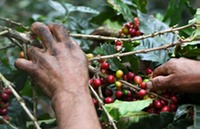
Feb 08/2012. A recently published scientific study has found an association between diet soft drink consumption and vascular events such as stroke, heart attack (myocardial infarction) and vascular death. The study was performed by researchers from The University of Miami Miller School of Medicine in Florida and Columbia University in New York. The results are published in a recent online edition of the Journal of General Internal Medicine.
An association between sugar-sweetened soft drinks and obesity, insulin sensitivity and high blood pressure has commonly been attributed to their high caloric and sugar load as well as lack of nutrients. Their popularity and rising rates of obesity in the community underscore the need for healthier beverages. Therefore, artificially sweetened diet soft drinks have been marketed as healthier alternatives, mainly due to their lack of calories. However, recent studies have suggested that diet soft drink consumption may be associated with health consequences as well, such as type 2 diabetes and the metabolic syndrome. No previous studies have directly studied the association between diet soft drink consumption and the risk vascular events such as stroke and heart attack.
Interview with Hannah Gardener
The study was a so called population based cohort study of participants in the NOMAS (Northern Manhattan Study). Participants were older than 40 years (mean age 69) and had no previous history of stroke. Diet and regular soft drink consumption was assessed by frequency questionnaire. Over a mean follow-up period of 10 years there were 591vascular events (stroke, myocardial infarction, vascular death).
The association between soft drink consumption and vascular events was assessed after controlling for other possible risk factors for stroke and heart attack such as age, gender, race/ethnicity, education, smoking, physical activity, alcohol consumption, BMI, daily calories, consumption of protein, carbohydrates, saturated fat and sodium.
The authors found no association between regular soft drink consumption and the risk of vascular events. However, daily diet soft drink consumption was associated with an elevated risk of vascular events. These individuals had a 43% increased risk of vascular events as compared to those who did not drink diet soft drinks at all.
The authors do not conclude directly that daily diet soda consumption by itself increases the risk of vascular events. Diet soft drink consumption was indeed associated with many other important risk factors such as diabetes, increased BMI, previous heart disease, high blood pressure, low HDL and elevated triglycerides. The authors suggest that these individuals may have been consuming diet soft drinks in an effort to reduce calories and sugar in order to lose weight. However, even after controlling for these confounding factors, daily diet soft drink consumption was associated with increased risk for vascular events. In contrast, consumption of regular soft drinks was not associated with such risks.
Since no other studies have found a link between diet soft drink consumption and heart attacks, more research is needed, explains lead researcher Hannah Gardener, PhD, from the Miller School of Medicine at the University of Miami. Future studies in younger populations in which diet soft drink consumption is more prevalent may be particularly important, as are studies examining the associations between all beverages, including other non-soft drink sugar-sweetened and diet beverages, and vascular events.






